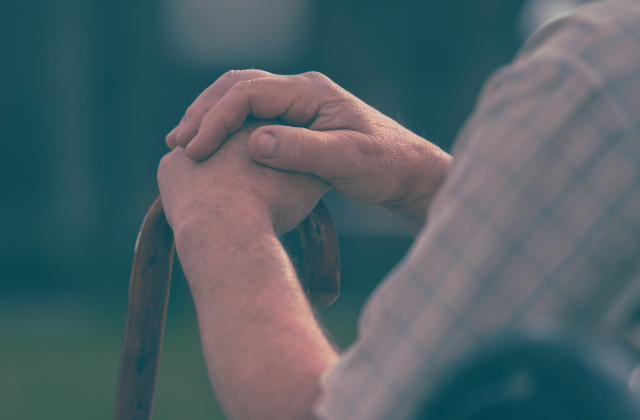Signs of needing home care for elderly individuals
As we journey through life, the needs of older adults often evolve, and recognizing these changing care needs becomes crucial, especially when it comes to ensuring their well-being and quality of life.
Signs of Needing Home Care
- Physical Limitations: One of the prominent signs of needing home care is the presence of physical limitations that hinder day-to-day activities. These limitations may include difficulty with mobility, performing personal hygiene tasks, or managing medication independently.
- Cognitive Changes: Recognizing cognitive changes such as memory loss, confusion, or dementia is crucial. These signs may indicate a need for specialized home care services tailored to cognitive health.
- Chronic Health Conditions: The presence of chronic health conditions that require ongoing medical attention, such as diabetes, heart disease, or respiratory disorders, can signify the need for home health care.
- Emotional and Psychological Distress: Older adults experiencing depression, anxiety, or emotional distress may benefit from home care that includes emotional support and companionship.

Addressing These Signs
Addressing the signs of needing home care begins with open communication and assessment. Family members, healthcare professionals, and the older adult should collaborate to determine the specific care needs. Once identified, a personalized care plan can be established to address physical, cognitive, emotional, and medical requirements.
Recognizing and Anticipating Home Health Care Needs
Anticipating home health care needs is a proactive approach to ensure the well-being of older adults. Regular assessments and discussions about recognizing care needs and evolving care requirements can help caregivers and healthcare providers adapt the care plan accordingly. This proactive approach helps prevent crises and ensures that the older adult receives the appropriate level of care at all times.
Home care options
- In-Home Caregivers: Trained caregivers can provide assistance with daily tasks, medication management, and companionship, allowing older adults to remain in the comfort of their homes.
- Home Health Services: Skilled nurses and therapists offer medical care and rehabilitation services in the home, especially beneficial for those with chronic conditions or recovering from surgery.
- Hospice Care: For individuals with terminal illnesses, hospice care provides compassionate end-of-life support that focuses on comfort and quality of life.
- Assisted Living Services: Some older adults may benefit from residing in assisted living communities that offer a blend of independence and support.
- Spiritual Support Services: Engaging with spiritual counselors or connecting with religious organizations can provide spiritual care tailored to individual beliefs and needs.
Start home care with Angel Care now, in NY.
One trusted and reliable option for receiving high-quality home care assistance is Angel Care, Inc. With a commitment to ensuring the well-being of older adults, Angel Care offers a range of personalized services designed to address individual care needs. You can contact them by phone at 917-507-7500 or send an inquiry via email to [email protected].

At Angel Care, we pride ourselves on our extensive experience in home care services and recognize the importance of addressing both our clients' and our own mental well-being. Drawing from our expertise, we offer valuable advice to ensure you and your loved ones maintain a healthy psychological state. Emotional wellness, often overlooked in home care, is vital for one's ability to handle emotions, sustain positive relationships, and navigate life's challenges. It's about making sure those in home care feel supported and valued in their own homes. Focusing on emotional health is crucial for several reasons. It can affect physical health, enhance the quality of life by bringing joy and fulfillment, and prevent feelings of isolation and loneliness common in home care. By prioritizing emotional wellness, caregivers can foster an environment that supports healing and a sense of belonging. This holistic approach acknowledges the interconnection between mind and body for optimal well-being. Understanding Emotional Wellness Emotional wellness is more than just the absence of mental illness; it's about actively managing one's emotions and mental state. It involves acknowledging and expressing feelings healthily and coping with life's stresses. It's about finding balance and contentment, even in tough times. It's important to differentiate between emotional wellness and mental health. While mental health covers a wider range of psychological well-being, including mental illnesses, emotional wellness focuses on an individual's emotional state and their ability to maintain a positive outlook. The Role of Home Care in Emotional Wellness Home care providers are key to supporting their clients' emotional well-being by: Offering companionship and a listening ear to combat loneliness and isolation. Facilitating communication between the individual receiving care and their loved ones to maintain strong relationships. Providing emotional support during tough times, like illness or post-hospital recovery. A supportive home care environment is crucial for emotional health, as it can make individuals feel more secure and less anxious, leading to better overall well-being. Examples of Emotional Wellness in Home Care Promoting emotional wellness in home care can take many forms, such as: Encouraging clients to engage in enjoyable activities like gardening or painting. Setting up regular video calls with family for those who can't have in-person visits. Including relaxation and mindfulness practices in care plans, like meditation or deep breathing exercises. These approaches not only improve the emotional well-being of those receiving care but also enhance the overall home care experience. Challenges to Emotional Wellness in Home Care Individuals in home care may face challenges like: Dealing with chronic illness or disability, leading to frustration or sadness. Experiencing social isolation due to mobility issues or health conditions. Coping with the stigma around emotional wellness, which can hinder seeking help or expressing feelings. Addressing these challenges requires a compassionate approach from caregivers and open communication with care recipients. The Center for Emotional Wellness Centers for emotional wellness provide counseling, support groups, and educational programs focused on emotional health. Collaborating with these centers can enhance the support provided in home care, offering specialized assistance or integrating resources into care plans for specific emotional needs. Practical Tips for Promoting Emotional Wellness in Home Care To promote emotional wellness in home care, consider: Encouraging regular physical activity for mood improvement. Ensuring a healthy diet for mental health benefits. Providing opportunities for social interaction through visits or community activities. Training caregivers in emotional intelligence and communication skills to better support clients' emotional needs. Mental Health with Angel Care Emotional wellness is essential for comprehensive home care. By focusing on the emotional well-being of those receiving care, caregivers can create a supportive environment that promotes overall health and happiness. As the significance of emotional wellness in home care gains recognition, it's vital for caregivers, families, and healthcare providers to collaborate in prioritizing and addressing the emotional needs of those in their care. Angel Care is dedicated to providing top-quality home care services. If you or your loved ones require support, don't hesitate to contact us today.

In the journey of aging, the significance of emotional well-being becomes increasingly apparent. For older adults, maintaining mental health and emotional stability is paramount to a fulfilling and meaningful life. The Role of Emotional Support in Mental Well-Being Emotional health is a crucial component of a content and rewarding life, especially for seniors who greatly benefit from receiving focused emotional support. This support is key in maintaining their mental health. Isolation and chronic loneliness are known to adversely affect the elderly's mental state, leading to the development of issues like anxiety, depression, and various complex mental health problems. The dire consequences of these mental health challenges are often overlooked, but they can cast a shadow over the golden years of seniors' lives. Nevertheless, the presence of compassionate and empathetic companions can act as a beacon of hope in this emotional landscape. These caregivers, offering not only physical assistance but also invaluable emotional sustenance, play a transformative role in alleviating the mental health struggles faced by seniors. The Dangers of Senior Isolation at Home Senior isolation, especially when confined to the home, poses significant dangers to emotional and mental health. The absence of social interactions and friendship can lead to feelings of loneliness, sadness, and even despair. It can also exacerbate existing health conditions and decrease overall life satisfaction. Recognizing these dangers is the first step in addressing them proactively. How can caregivers help seniors? Caregivers provide an essential and empathetic service by supporting the emotional health of seniors with their nurturing demeanor in home care settings. In the realm of companionship in home care, caregivers engage in meaningful conversations, foster connections, and actively encourage seniors to participate in social activities, thus creating a nurturing and emotionally enriching environment where emotional well-being takes precedence. This level of dedicated support goes beyond the confines of traditional caregiving; it is a heartfelt commitment to nurturing the emotional and mental health of each individual under their care. Angel Care, Inc. - Your Reliable Ally in Elderly Home Care At Angel Care, Inc., we understand the profound impact of emotional well-being on the lives of seniors. Our dedicated team of caregivers is committed to providing exceptional care services, including skilled support, that prioritize the mental health and happiness of our senior clients. If you or your loved ones are seeking home care services, please don't hesitate to contact us at 917-507-7500 or send us an inquiry via email at [email protected]. Together, we can create a fulfilling and emotionally nurturing environment for seniors in the comfort of their own homes. At Angel Care, Inc., we deeply appreciate and recognize the profound impact that emotional well-being holds within the lives of our beloved seniors. Our unwavering dedication is embodied by our exceptional team of caregivers. Our approach goes well beyond traditional caregiving. We specialize in delivering exceptional, high-quality home care services. We acknowledge that emotional support is not just an additional facet but a fundamental necessity for our cherished senior community. By joining hands with Angel Care, Inc., we embark on a shared journey to create an environment that is profoundly fulfilling and emotionally nurturing for our seniors. Your pathway toward enhanced emotional well-being and quality home care services begins here, with Angel Care, Inc.



